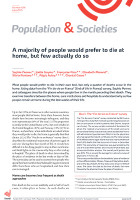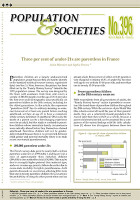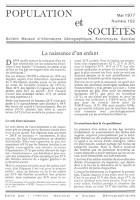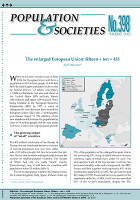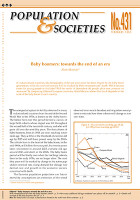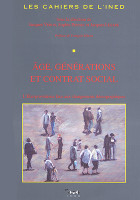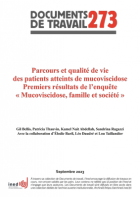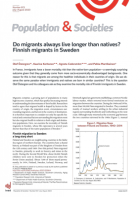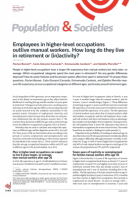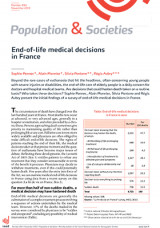
End-of-life medical decisions in France
Population and Societies
n° 494, November 2012
Beyond the rare cases of euthanasia that hit the headlines, often concerning young people with severe injuries or disabilities, the end-of-life care of elderly people is a daily concern fordoctors and hospital medical teams. Are decisions that could hasten death taken on a routine basis? Who takes these decisions? Sophie Pennec, Alain Monnier, Silvia Pontone and Régis Aubry present the initial findings of a survey of end-of-life medical decisions in France.
Read the interview of Sophie Pennec on Fin de Vie en France [End-of-life in France] survey
In France, almost half of deaths (48% in 2010) are preceded by a medical decision that may hasten death. But only in 1% of cases are drugs administered to deliberately end life. The large majority of decisions taken are based on the provisions of the Leonetti Act, which enables physicians, under specific circumstances,to withhold or withdraw treatment or to administer drugs in order to alleviate pain or symptoms that may have the effect of hastening death. However, the legal provisions governing these decisions are still not always fully known or complied with: end-of-life decisions are not always discussed with the patients and medical teams, and very few patients draw up advance directives, as recommended in the Leonetti Act, to express their wishes to the physicians responsible for their care.


